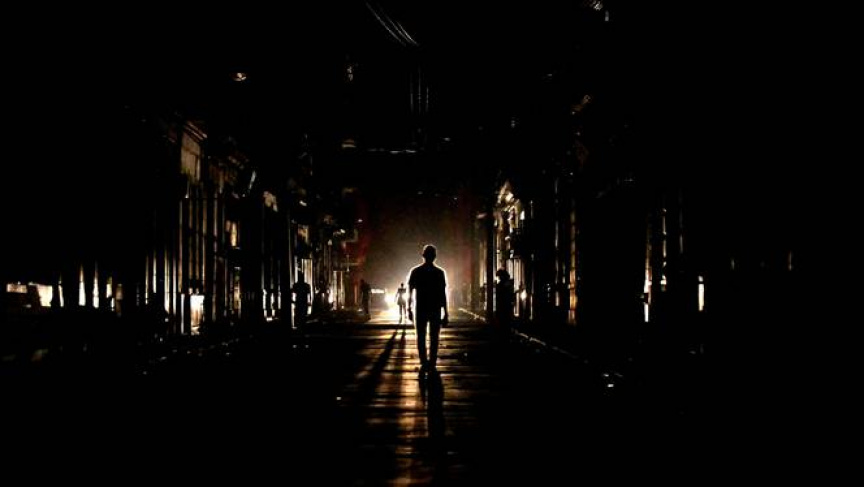
People walk in the street at night as Cuba is hit by an island-wide blackout, in Havana, Cuba, October 18, 2024. (Photo/Reuters)
Cuba was racing to restore electricity after the failure of the island's biggest power plant caused a nationwide blackout, coming on the heels of weeks of extended outages across the cash-strapped country.
The capital Havana came to a virtual standstill as schools closed, public transport ground to a halt and traffic lights stopped functioning.
The head of electricity supply at the energy ministry, Lazaro Guerra, said the process of restoring power to communist Cuba's 11 million inhabitants was in its early stages.
"Currently, we have some level of electricity generation" that will be used to start up power plants in several regions of the country, he added.
Guerra previously told state media that the power system had collapsed due to the unexpected shutdown of the Antonio Guiteras power plant, the biggest of the island's eight decrepit coal-fired power plants.
The blackout followed weeks of power outages, lasting up to 20 hours a day in some provinces, which prompted Prime Minister Manuel Marrero on Thursday to declare an "energy emergency."
On Thursday, the government suspended all non-essential public services to prioritise the electricity supply to homes.
Schools across the country have now been closed until Monday. Authorities in Havana said hospitals and other essential facilities, which are powered by generators, would remain open.
"This is crazy," Eloy Fon, an 80-year-old retiree living in central Havana, told AFP.
"It shows the fragility of our electricity system... We have no reserves, there is nothing to sustain the country, we are living day-to-day."
'The worst I've seen in 47 years'
Barbara Lopez, a 47-year-old digital content creator, fumed that she had "barely been able to work for two days and now this: what do I do?
"It's the worst I've seen in 47 years," she said. "They've really messed up now... we have no power or mobile data."
For three months, Cubans have been battling chronic blackouts that had become longer and more frequent.
The national energy shortfall has hovered at around 30 percent, but on Thursday it rose to nearly 50 percent of the island's needs, causing widespread frustration and anger.
President Miguel Diaz-Canel said on X Friday that the government would "not rest" until the lights were back on.
___
Source: TRT